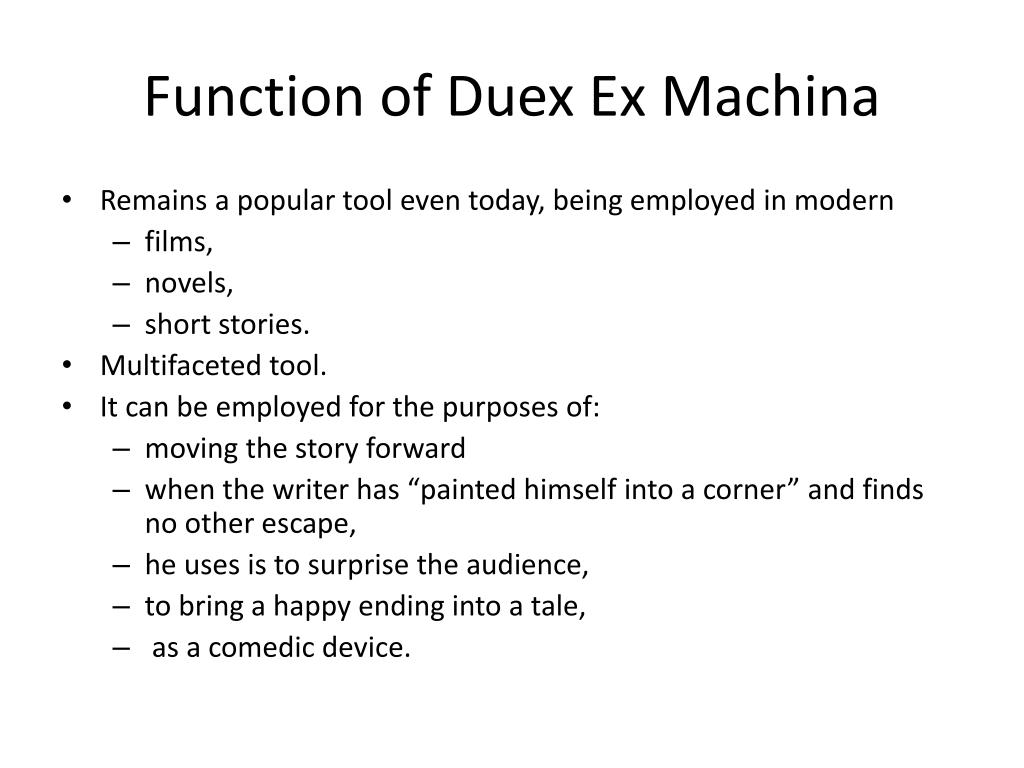

So Gollum’s recapture of the ring has been a long time in coming. The pity of Bilbo may rule the fate of many.” The end is even foreshadowed by Gandalf’s words: “My heart tells me that Gollum has some part to play in it, for good or evil, before this is over. His life was twice spared, once by Bilbo and once by Frodo, who took him as a guide over Sam’s objections. He lost the ring to Bilbo and later stalked Frodo, consumed by a terrible need to repossess it. He had a long history with the ring, stretching back before the events in The Hobbit. Gollum didn’t suddenly appear at the climax of The Lord of the Rings. It may look almost magical when it happens, but its roots are deeply embedded in what went before. Eucatastrophe in the makingīy contrast, eucatastrophe is built into a story. As such, it’s a generally maligned technique. That’s what a deus ex machina is: a resolution “out of the blue,” bearing no clear relationship to anything earlier in the story.

Until he mentions it, we have no clue that phoenixes respond to loyalty. The phoenix arrived unheralded, even though later Dumbledore explains that Harry’s loyalty summoned him. The naval vessel appeared out of nowhere. The gods - literal or figurative - that resolve the conflict weren’t in evidence until needed to perform their magic. What makes these and similar examples dei ex machina is their complete lack of connection to anything that happened earlier in the story. Rowling used the device at the end of Harry Potter and the Chamber of Secrets, when the phoenix arrives, bearing the sorting hat containing the sword of Gryffindor, with which Harry kills the basilisk. William Golding’s Lord of the Flies ends with the appearance of a naval vessel to rescue the marooned boys from the island. Shakespeare’s As You Like It ends with a literal deus ex machina when Hymen, the god of marriage, appears and straightens out everyone’s mess. It fell from favor as a literary device, although it has been used by prominent writers. In later eras, deus ex machina became the term for a contrived resolution to a story. Being a god, he or she would instantly set the world right so everyone could go home happy. To resolve their disaster, a god would appear, lowered onto the stage by a crane-like mechanism called a mechane. The god from the machineĪs you certainly know, deus ex machina more or less literally means “god from the machine.” In ancient Greek theater, the characters would sometimes find themselves in such a mess that they couldn’t possibly extract themselves. There is a crucial difference between eucatastrophe and deus ex machina. In fact, it was impossible for Frodo to succeed without Gollum’s “help.” Thus it was a good catastrophe, a eucatastrophe, because through it Sauron was defeated.īut isn’t this just a deus ex machina, the miraculous intervention by some outside force to save the day when the hero is incapable of doing it himself? Actually not. But that very catastrophe results in victory. Thus the ring is destroyed, and Sauron is defeated.įrodo fails on two counts: he cannot destroy the ring, and he loses it to Gollum. But Gollum ambushes Frodo, seizes the ring, and in his exuberance at regaining his “precious” falls into the fire. Doom only to be undone by its evil power. Against all odds, Frodo carries Sauron’s ring to the fires of Mt. The classic example of the technique is Tolkien’s own resolution to the primary conflict in The Lord of the Rings. Literally, it means “good catastrophe,” and by it he meant a sudden turn of events that changes disaster into victory. Tolkien coined an unusual term: eucatastrophe.


 0 kommentar(er)
0 kommentar(er)
